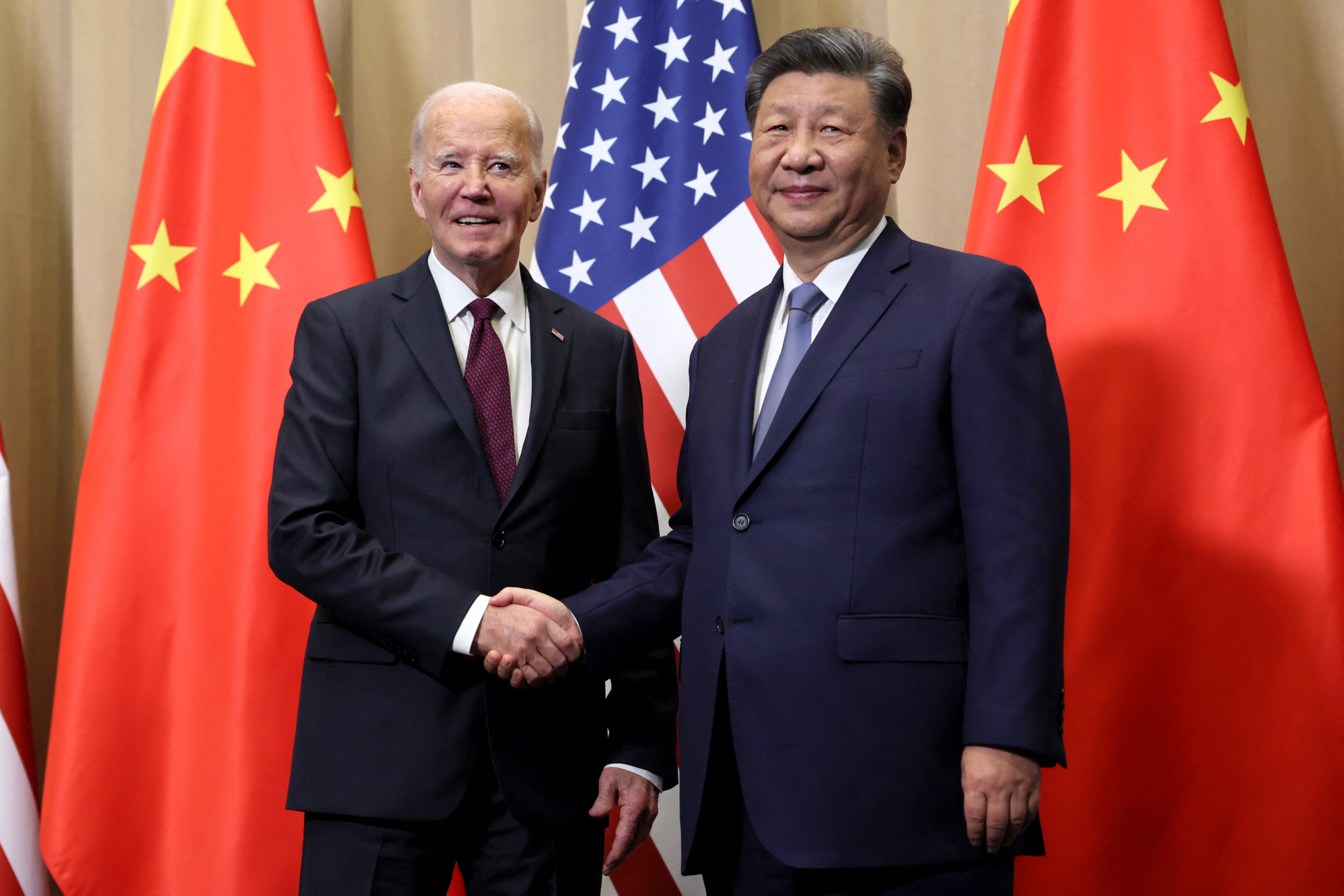
President Joe Biden and Chinese President Xi Jinping gathered for what may be their last face-to-face encounter at the Asia-Pacific Economic Cooperation (APEC) summit in Peru, as questions swirl about the future of U.S.-China relations under a Donald Trump presidency complicated by Elon Musk‘s nomination to the Cabinet.
Xi’s carefully worded message emphasized Beijing’s desire for continuity while notably avoiding any mention of the incoming president: “China is ready to work with a new U.S. administration to maintain communication, expand cooperation and manage differences to strive for a steady transition of the China-U.S. relationship for the benefit of the two peoples,” he said through an interpreter.
The Tesla CEO’s appointment to lead the newly created Department of Government Efficiency alongside tech investor Vivek Ramaswamy follows Musk’s significant financial backing of Trump’s campaign, having spent tens of millions to support the president-elect.
The incoming administration presents stark contrasts in its China approach. Trump has nominated China hawks Marco Rubio and Mike Waltz as secretary of state and national security adviser, while threatening 60 percent tariffs on Chinese exports and sanctions on Chinese electric vehicles built in Mexico. “Tariffs are the greatest thing ever invented,” Trump declared in September in Flint, Michigan, citing an $800 billion trade deficit with China.
Musk, whose Tesla operates a crucial “gigafactory” in Shanghai generating 22.5 percent of the company’s total revenue, has taken a markedly different stance. “Neither Tesla nor I asked for these tariffs,” he stated at a Paris technology conference. “Things that inhibit freedom of exchange or distort the market are not good. Tesla competes quite well in the market in China with no tariffs and no deferential support. I’m in favor of no tariffs.”
His accommodating relationship with Beijing has been consistent. After praising “China rocks” in a 2020 podcast and congratulating the CCP on its centenary, Musk has demonstrated steady compliance with Chinese authorities. When China required Tesla to recall 285,000 vehicles in 2021, he readily agreed. During a 2022 COVID-19 shutdown of Tesla’s Shanghai factory, Musk quietly complied – contrasting sharply with his “fascist” criticism of similar California restrictions.
The complications extend beyond trade. U.S. intelligence officials have reported increased Chinese sales of technology to Russia supporting its war effort in Ukraine. The FBI recently revealed details of a “broad and significant” Chinese cyberespionage campaign targeting American government and political figures. Last year’s shooting down of a Chinese surveillance balloon over U.S. territory further strained relations.
Some experts see potential for Musk to become a diplomatic bridge-builder, drawing parallels to Henry Kissinger‘s historic role. In April, Musk met Chinese Premier Li Qiang, who praised Tesla as exemplifying successful U.S.-China trade cooperation.
The meeting in Lima carried particular significance for Biden, who is concluding over five decades in American politics.
“Over the past four years, China-U.S. relations have experienced ups and downs, but with the two of us at the helm, we have also engaged in fruitful dialogues and cooperation, and generally achieved stability,” Biden reflected during the meeting.
This article includes reporting from The Associated Press.
